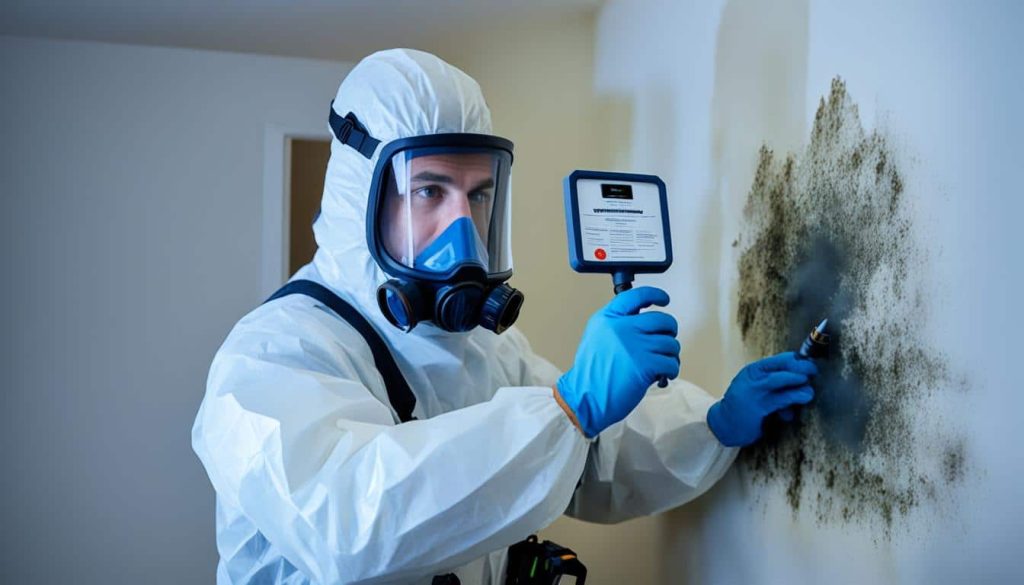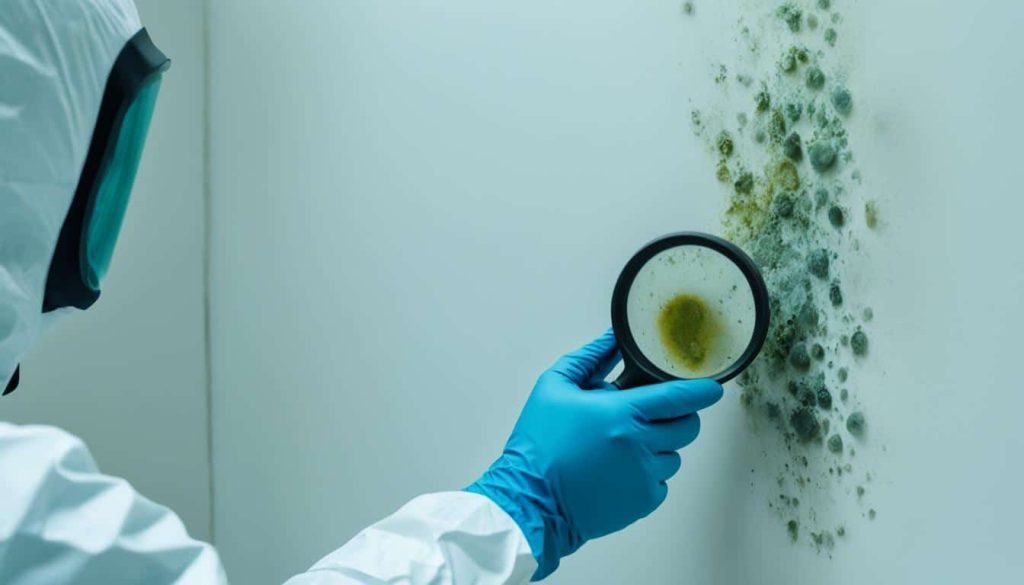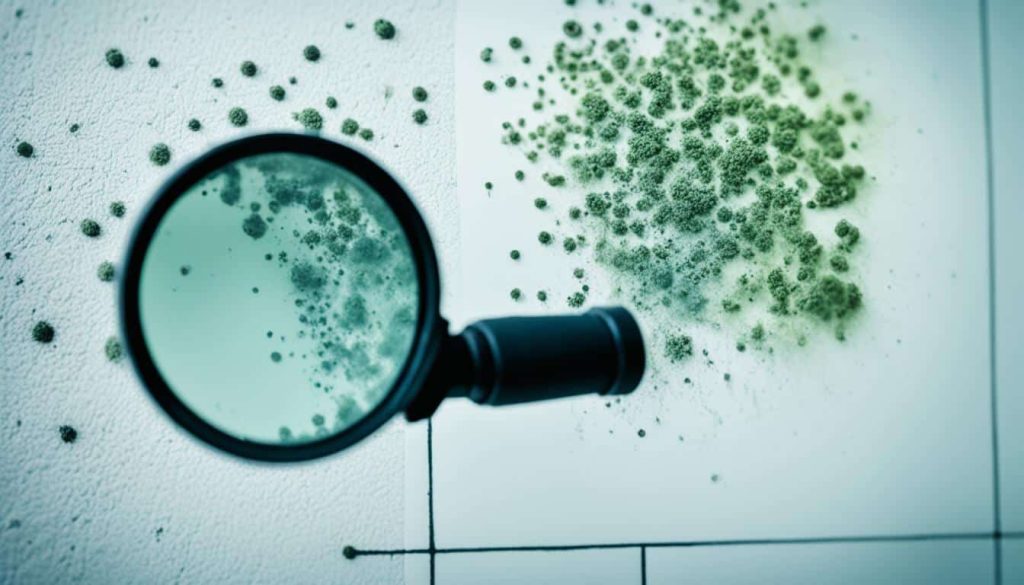Understanding what does mold look like is essential for effective identification and remediation. As an expert in mold testing and remediation, I frequently encounter various types of mold, each with its distinct appearance. Identifying mold correctly is crucial because different types of mold require different treatments. In this article, we’ll explore how to recognize mold, its implications for health, and the importance of professional assessment.
Array of Solutions, a trusted name in mold removal in Greenville South Carolina since 2007, stands ready to tackle your mold woes. With our expert mold inspection Greenville services and EPA-Registered credentials, we’re equipped to detect, remove, and prevent mold growth in your home or business.
Table of Contents
What Does Mold Look Like?
Mold can appear in a variety of colors and textures, depending on its type and the surface it’s growing on. For instance, the first photo shows blue mold, which is often a sign of Penicillium species. This mold type can appear as greenish-blue or even turquoise and is commonly found in damp or water-damaged areas.
Another way to identify mold is by using commercial-grade peroxide. When applied to suspected mold, peroxide reacts by foaming if the sample is indeed mold. The second photo illustrates this reaction. This simple test can help determine whether the growth is mold and, in some cases, what type of mold it may be.
While peroxide testing is useful, it is not a definitive method for mold identification. For a thorough analysis, physical samples of the mold should be sent to an accredited laboratory. This step ensures accurate identification and guides the appropriate remediation process.

The Importance of Accurate Mold Identification
Properly identifying mold is critical for several reasons. First, different mold types can have varying health impacts and require specific treatment methods. For example, black mold (Stachybotrys chartarum) is notorious for its potential health risks and requires targeted remediation strategies.
Mold that is not properly identified can lead to ineffective treatment, prolonged exposure, and ongoing health issues. In some cases, initial tests may suggest one type of mold, only for lab results to reveal something different. This is why initial peroxide testing is crucial in narrowing down the scope of the problem and developing an effective remediation plan.
Health Implications of Mold Exposure
Mold exposure can lead to a range of health issues, particularly if it is left untreated. Common symptoms include respiratory distress, hay fever, allergies, and cold or flu-like symptoms. These can escalate to more severe health problems such as fatigue, body aches, sore throat, insomnia, and skin rashes.
Children and the elderly are particularly vulnerable to mold-related health issues. Mold exposure can exacerbate existing health conditions and lead to long-term health problems if not addressed promptly. If you or someone in your household is experiencing these symptoms, it is crucial to seek professional assessment and remediation.
Why Professional Assessment is Crucial
While some homeowners attempt DIY mold removal, it is often insufficient for addressing more extensive mold problems. Professional mold inspectors use advanced techniques and equipment to accurately assess the extent of the contamination and develop a comprehensive treatment plan.
At Array of Solutions, we emphasize the importance of professional mold testing and remediation. Our expertise ensures that all aspects of mold contamination are addressed effectively, reducing health risks and preventing future issues.
If you suspect mold in your home or are experiencing symptoms of mold exposure, don’t hesitate to contact a professional. At Array of Solutions, we are committed to providing thorough assessments and effective solutions for all your mold-related concerns.

Contact Us for Professional Mold Testing and Remediation
If you or a loved one thinks you may have been exposed to black mold or any other type of mold, please reach out to us. Call 864-710-6413 to speak with Doug from Array of Solutions. We are here to answer your questions and provide expert guidance on mold testing and remediation. Don’t let mold compromise your health—get the professional help you need today.

